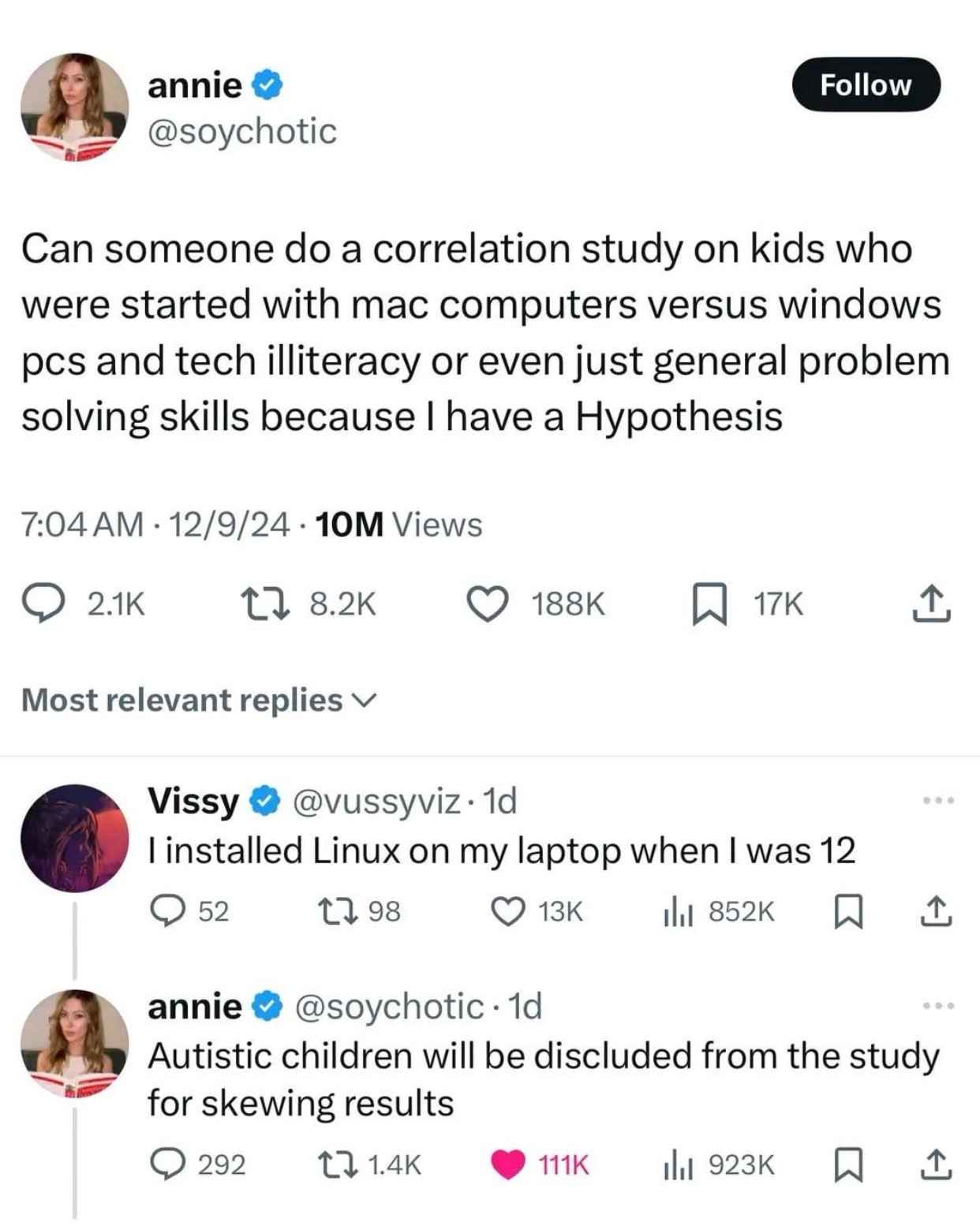this post was submitted on 12 Dec 2024
1475 points (98.6% liked)
196
17082 readers
1581 users here now
Be sure to follow the rule before you head out.
Rule: You must post before you leave.
Other rules
Behavior rules:
- No bigotry (transphobia, racism, etc…)
- No genocide denial
- No support for authoritarian behaviour (incl. Tankies)
- No namecalling
- Accounts from lemmygrad.ml, threads.net, or hexbear.net are held to higher standards
- Other things seen as cleary bad
Posting rules:
- No AI generated content (DALL-E etc…)
- No advertisements
- No gore / violence
- Mutual aid posts require verification from the mods first
NSFW: NSFW content is permitted but it must be tagged and have content warnings. Anything that doesn't adhere to this will be removed. Content warnings should be added like: [penis], [explicit description of sex]. Non-sexualized breasts of any gender are not considered inappropriate and therefore do not need to be blurred/tagged.
If you have any questions, feel free to contact us on our matrix channel or email.
Other 196's:
founded 2 years ago
MODERATORS
you are viewing a single comment's thread
view the rest of the comments
view the rest of the comments

I don't understand the correlation with technical people on Mac. Like I DONT GET IT 😭
how can you just be ok with not being able to do stuff you want? I tried to use a cracked iPhone before deciding just to buy a new android because I just bout exploded with the corporate shenanigans apple has.
Edit: It would appear that Mac is very different from IOS. Ive never tried it other than 15 minutes of fiddling with a friends once, nice to know it's not as locked down as IOS is.
Many thanks, but I hardly understand this conversation lol
The fact I had to use iTunes to put music on my phone and the lack of access to the filesystem were extreme deal breakers for me. There is also the impossible hoops you had to jump through to change ownership of a phone. I gave my mother my old iPhone when I changed to Android and it was impossible to scrub my account from it, even with a factory reset.
The environment felt way too sterile for my liking. It treated me, a legitimate tech savvy user, like a malicious imbecile.
So it's doing security correctly.
I hate this take. That is not how security should look on consumer devices at all and it's one of the ways the security industry is being co-opted to ruin consumer devices. The user is not the attacker on a consumer device. Consumer devices should provide tools to enable strict protections and allow the user to choose. It should be easy to put the device into the fully locked down state at instal/initial provisioning, likely even the default, but it should also be easy to deviate from that during provisioning. After provisioning it should, of course, be incredibly hard or impossible to go from the locked-down state to the nonlocked-down state without wiping data.